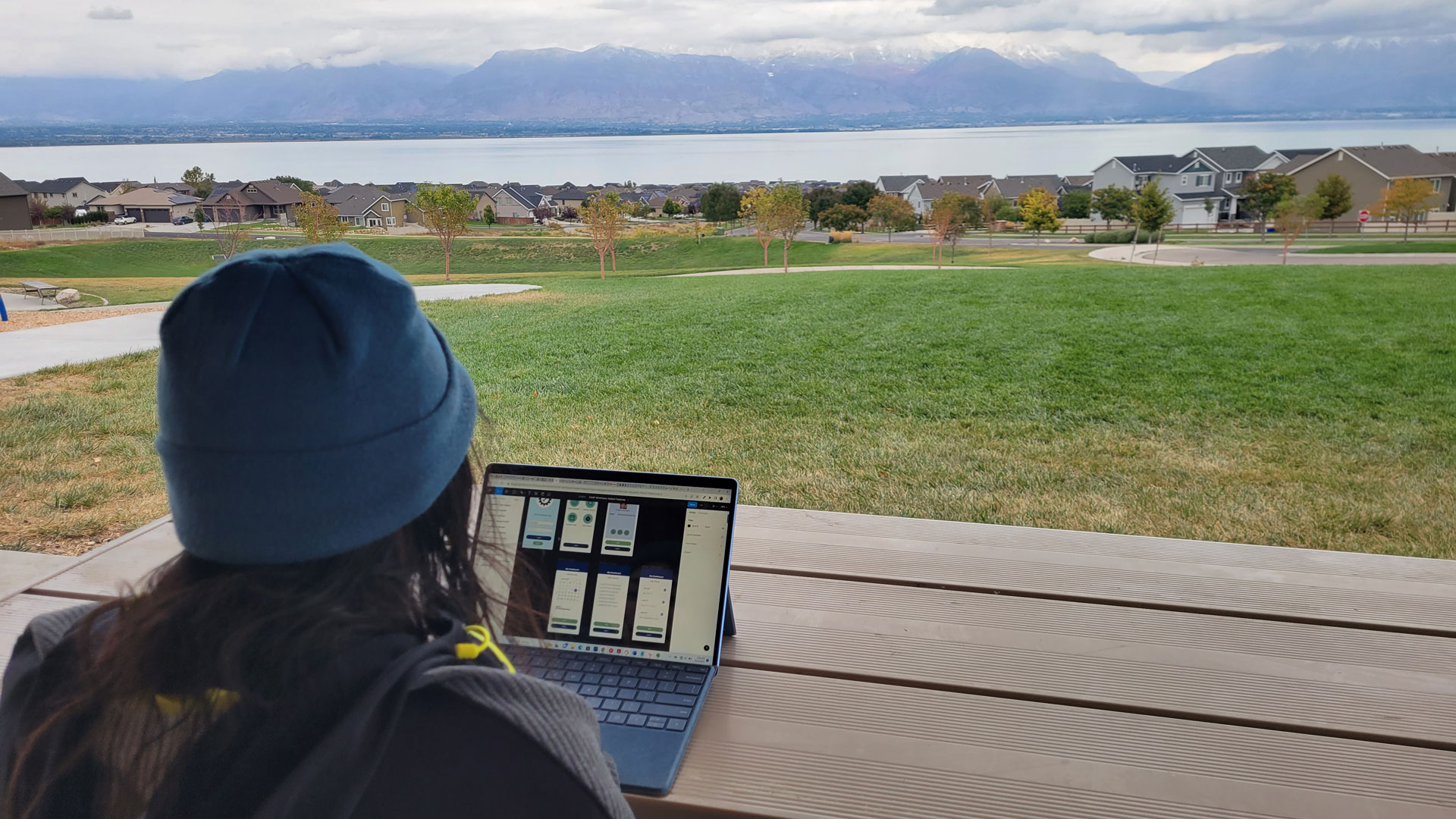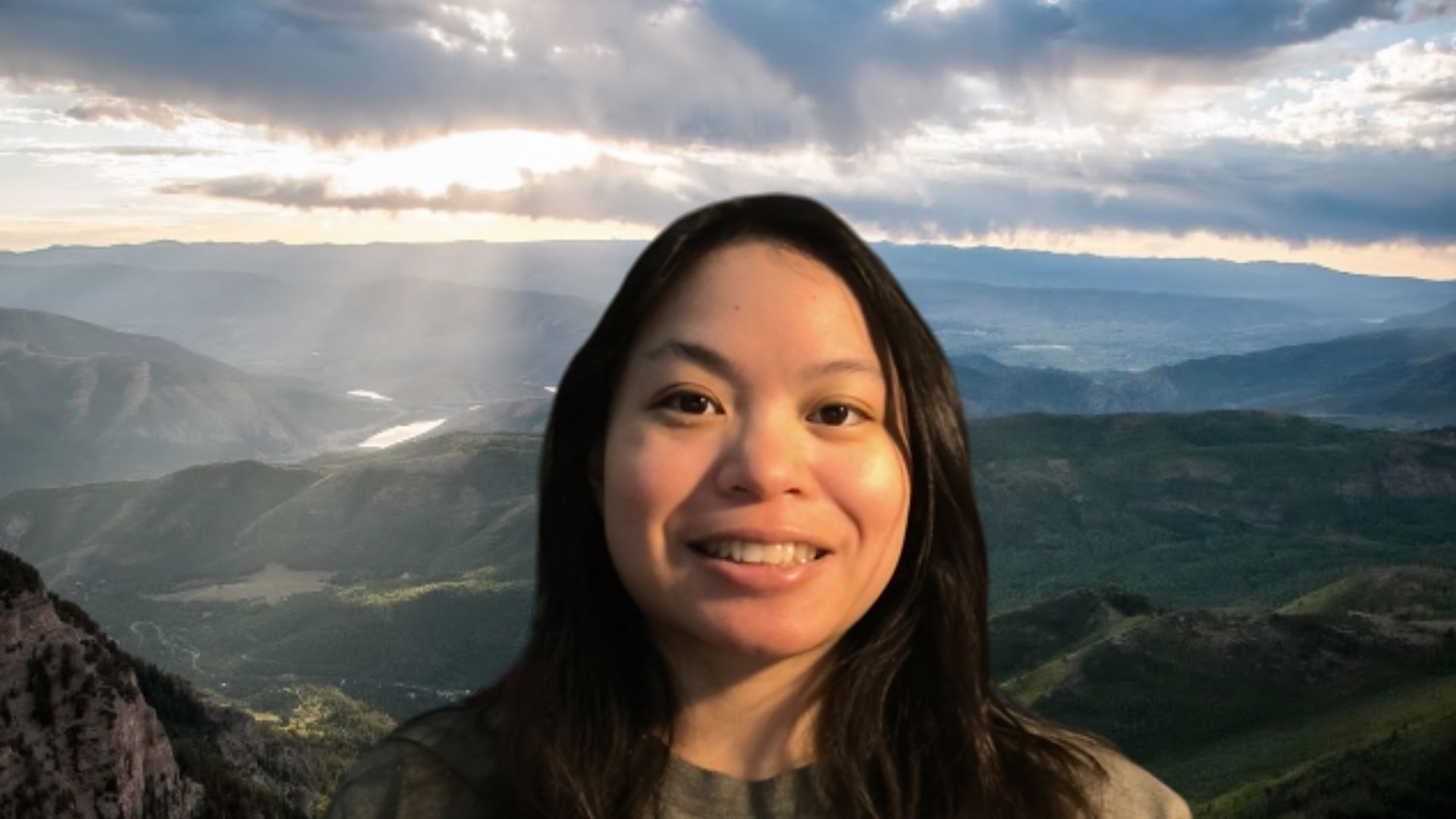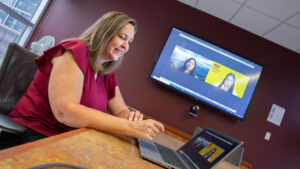Crislana Rafael
Software engineering
Hometown: Vancouver, British Columbia, Canada
Graduation date: Spring 2025
Additional details: First-generation college student, Online student, Transfer student
FURI | Fall 2023
Accessible Education Platform Development for the Employment Assistance & Social Engagement (EASE) Program
This project involves designing a digital platform to enable student success for participants enrolled in ASU’s EASE program. During the spring semester, a survey was designed to gather feature suggestions from EASE mentors and mentees. Data gathered from this survey helped shape an early prototype of the platform. During the fall semester, efforts were focused on prototype refinement and gathering additional user feedback. This data helped guide the efforts to implement an early functional version of the platform.
Mentor: Deana Delp
Featured project | Fall 2023


Crislana Rafael, a software engineering junior earning her degree online, is participating in FURI for a second semester. Her project focuses on designing a smartphone-based platform for the ASU Employment Assistance & Social Engagement, or EASE, program to support student success. The program, co-founded by Rafael’s faculty mentor, Deana Delp, an associate teaching professor of engineering programs, helps students with autism spectrum disorder transition into college, navigate earning their degrees and gain career readiness skills. She first became interested in engineering while earning her private pilot’s license and chose to study software engineering due to its collaborative nature and ubiquity in industry.
What made you want to get involved in FURI and why did you choose the project you’re working on?
Ever since I got accepted to ASU, I’ve been wanting to get involved in undergraduate research. However, being an online student presented many challenges in that there were very few labs who were willing to take on online students. I scoured the research opportunities page and stumbled upon a project to create a digital platform for mobile devices that was open to online students. As someone who enjoys Android development as a hobby, I thought it was a great fit.
How will your engineering research project impact the world?
It’s a great project to get a better sense of how to make tools and platforms more accessible, especially for those who are neurodivergent. I think it has the potential to help inform other universities running mentorship programs aimed at neurodiverse students and their needs.
What has been your most memorable experience as a student researcher? Did you have a particular “aha!” moment during your project?
Being able to present my research at the FURI Symposium during the Spring 2023 semester was quite memorable for me. I was not sure whether I needed to be in Tempe to present my work, but the FURI program was able to accommodate me to be present virtually. They set me up with Zoom and a camera, and I had several visitors ask me questions about my research.
Being one of the few online students participating in FURI has meant a lot, as I’m very grateful for the FURI program’s help to accommodate and welcome me. I think there’s a lot of opportunity to get online students on board, and I believe this can be an invaluable experience for them.
I was worried being an online student would make it hard to pursue FURI, but there are so many opportunities for researchers and labs to recruit these students. There just needs to be creative thinking in terms of accommodating conducting research in a virtual environment. I would like to see FURI continue increasing efforts in onboarding more ASU Online students into the program and getting that experience.
Have there been any surprises in your research?
Through this research, I was surprised at how purposeful and deliberate I needed to be to word survey questions during the survey design phase of the project. I was also surprised at the high number of neurodiverse students who choose to major in science, technology, engineering and math, or STEM. I think because of that, there needs to be more resources and ways we can help this subgroup of students succeed in the classroom and to prepare for the workforce.
How do you see this experience helping with your career or advanced degree goals?
I’m curious about exploring postgraduate education, so being involved in research gives me insight into whether research or academia is a right fit for me, either now or at a later point in my career. As an aspiring software engineer, I also think this helps me to think more about how to design products for users and to think more about the wants and needs of the user base in addition to getting additional mobile development experience.
What is the best advice you’ve gotten from your faculty mentor?
I’ve gotten really good advice from my faculty mentor indirectly during our research sessions, particularly in voicing my feedback. Being new to undergraduate research, I felt that it was my job to listen and take notes, but with Dr. Delp and Maria Dixon [a clinical professor in the ASU College of Health Solutions who is a co-developer of the EASE program with Delp], I felt like my opinions were equally valued during my project. I learned that I can provide value with my own insights as an undergraduate researcher.
